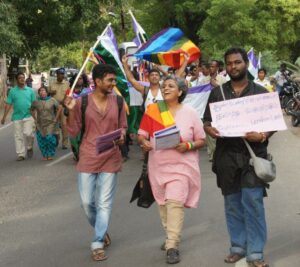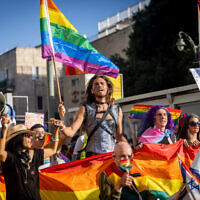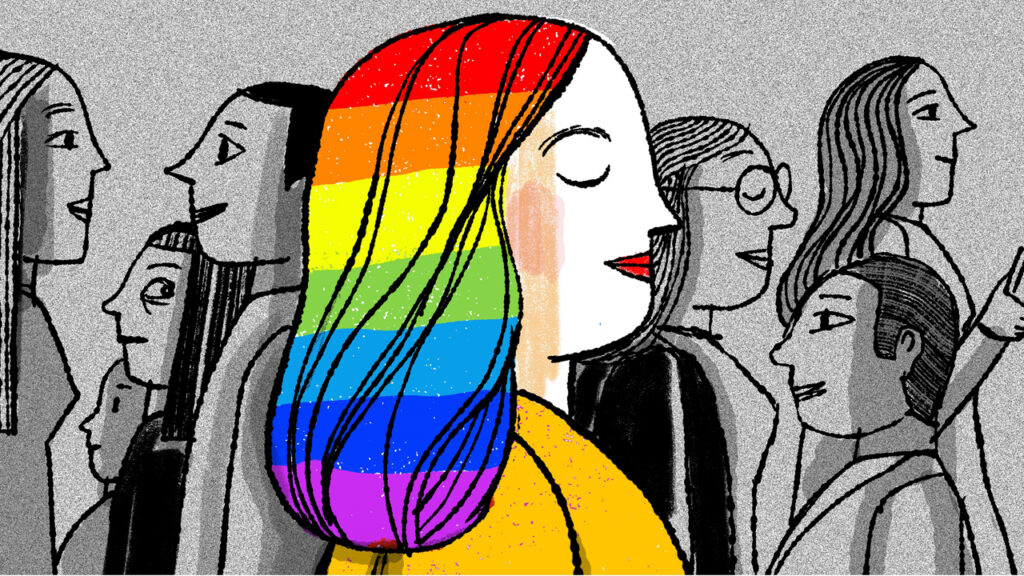In recent years, society has made significant strides toward greater acceptance and inclusivity for the LGBTQ+ community. However, despite these advancements, gay people still face numerous challenges that can impact their lives on various levels. This article delves into gay people’s problems, focusing on discrimination, social barriers, mental health issues, relationships, healthcare, workplace dynamics, media representation, education, and the progress being made. By exploring these topics, we aim to shed light on the experiences of gay people, foster understanding, and encourage empathy and support.
Contents
Understanding the Challenges Faced by Gay People

The challenges faced by gay people can vary across different cultures, regions, and individual experiences, but there are several common issues that many gay individuals encounter. It’s important to note that while I can provide general information, experiences can differ significantly from person to person.
- Discrimination: Discrimination against gay people can manifest in various forms, including social stigma, prejudice, and exclusion. This can lead to challenges in various aspects of life, such as employment, housing, healthcare, and education.
- Legal and policy barriers: Many countries have laws and policies that discriminate against or fail to protect the rights of gay individuals. The criminalization of same-sex relationships, lack of legal recognition for same-sex partnerships or marriages, and limited legal protections can create significant challenges and limitations for gay people.
- Social acceptance: Despite progress in LGBTQ+ rights, social acceptance remains a challenge in many parts of the world. Homophobia, transphobia, and negative attitudes towards homosexuality can lead to isolation, rejection from family and friends, and difficulties forming and maintaining relationships.
- Coming out: The process of coming out (disclosing one’s sexual orientation) can be a complex and challenging experience for many gay individuals. Fear of rejection, discrimination, or violence can make it difficult to share their true selves with others, causing stress and emotional turmoil.
- Mental health issues: The experiences of discrimination, stigma, and rejection can contribute to higher rates of mental health issues among gay individuals. Depression, anxiety, substance abuse, and suicidal ideation are some of the challenges that gay people may face.
Coming Out and Self-Acceptance
Coming out and self-acceptance are important processes for many gay individuals. Here’s some information about these topics:
Coming out
Coming out refers to the process of disclosing one’s sexual orientation or gender identity to others, typically family, friends, and colleagues. It is a deeply personal decision and can be a significant step in embracing one’s authentic self. Coming out allows individuals to live more openly and authentically, fostering a sense of honesty and self-acceptance.
However, coming out can be a challenging and complex experience. It’s important to consider personal readiness and safety when deciding to come out. Some individuals may choose to come out gradually, starting with trusted individuals or support networks. Others may find it helpful to seek guidance from LGBTQ+-friendly resources, support groups, or professionals such as therapists or counselors who specialize in LGBTQ+ issues.
Self-acceptance
Self-acceptance is the process of recognizing, embracing, and affirming one’s own identity, including one’s sexual orientation. It involves developing a positive relationship with oneself and overcoming internalized homophobia or negative beliefs about being gay.
Self-acceptance can be a journey that varies in duration and intensity for each individual. It involves acknowledging and celebrating one’s unique identity, recognizing that being gay is a natural and valid part of who they are. Building self-acceptance often involves seeking support from LGBTQ+-inclusive communities, finding positive role models, and educating oneself about LGBTQ+ history and culture.
Relationships and Family Dynamics

Relationships and family dynamics can be significantly impacted when someone identifies as gay. Here are some key points to consider:
- Romantic relationships: Gay individuals form romantic relationships just like anyone else. These relationships can be loving, committed, and long-lasting. They involve the same dynamics and challenges that heterosexual relationships face, such as communication, trust, and mutual support.
- Challenging family dynamics: In some cases, family dynamics can become strained due to difficulties accepting a family member’s sexual orientation. This can lead to strained relationships, tension, and even estrangement. It’s important for both the individual and their family members to seek understanding, empathy, and open dialogue to work through these challenges.
- Creating chosen families: Not all gay individuals have accepting or supportive families. In such cases, creating chosen families becomes significant. Chosen families consist of friends, partners, and supportive community members who provide love, acceptance, and support. These relationships can be as meaningful and fulfilling as biological or legal family ties.
- Parenting and children: Many gay individuals become parents and build families through various means, including adoption, surrogacy, or co-parenting. Research consistently shows that children raised by same-sex parents fare just as well as children raised by heterosexual parents. The most important factors for a child’s well-being are love, support, and a nurturing environment.
Healthcare and LGBTQ+ Awareness
Healthcare and LGBTQ+ awareness are important topics to ensure that LGBTQ+ individuals receive respectful, inclusive, and appropriate healthcare services. Here are some key points to consider:
- LGBTQ+ healthcare disparities: LGBTQ+ individuals often face healthcare disparities due to various factors such as discrimination, lack of cultural competence among healthcare providers, and limited access to LGBTQ+-inclusive services. These disparities can lead to delayed or inadequate healthcare, lower rates of preventive care, and increased mental health issues.
- Cultural competence: Healthcare providers should strive to develop cultural competence in LGBTQ+ healthcare. This involves understanding the unique healthcare needs and concerns of LGBTQ+ individuals, being knowledgeable about LGBTQ+ terminology, and being aware of the health disparities and challenges they may face. By fostering an inclusive and affirming environment, healthcare providers can create a safe space for LGBTQ+ patients to discuss their healthcare needs openly.
- LGBTQ+-inclusive policies and practices: Healthcare institutions should implement policies and practices that promote LGBTQ+ inclusivity. This includes implementing nondiscrimination policies that protect LGBTQ+ individuals from discrimination, training healthcare providers on LGBTQ+ healthcare issues, and ensuring that electronic health records and intake forms include gender identity and sexual orientation information sensitively and inclusively.
- Education and training: Ongoing education and training for healthcare providers are essential to increase awareness and understanding of LGBTQ+ healthcare issues. This includes learning about LGBTQ+ terminology, the specific health needs of LGBTQ+ individuals (such as sexual health, mental health, and hormone therapy), and the best practices for providing inclusive and affirming care.
- Access to gender-affirming care: Transgender and gender-diverse individuals may require gender-affirming healthcare, including hormone therapy and gender-affirming surgeries. It is crucial to ensure that these individuals have access to knowledgeable healthcare providers who can provide comprehensive care and support throughout their gender-affirming journey.
Workplace Challenges
LGBTQ+ individuals can face specific challenges in the workplace due to their sexual orientation or gender identity. Here are some common workplace challenges faced by LGBTQ+ individuals:
- Discrimination and bias: Discrimination based on sexual orientation or gender identity can manifest in various ways in the workplace. LGBTQ+ individuals may face prejudice, bias, and unequal treatment, leading to missed opportunities for advancement, unequal pay, or limited career prospects. Discrimination can be overt or subtle, and it can negatively impact job satisfaction and overall well-being.
- Lack of legal protections: In some jurisdictions, there may be limited legal protections against workplace discrimination based on sexual orientation or gender identity. This lack of legal safeguards can leave LGBTQ+ employees vulnerable to discrimination, harassment, and unfair treatment without proper recourse.
- Closeted or disclosure challenges: The decision to come out at work is personal and can depend on various factors, such as workplace culture, legal protections, and personal comfort. Closeted individuals may face challenges in hiding their identities, managing personal and professional boundaries, and navigating conversations about personal relationships.
- Microaggressions and hostile work environment: LGBTQ+ individuals may experience microaggressions, which are subtle but harmful comments, actions, or behaviors that demean or marginalize them. These microaggressions, along with a hostile work environment, can create stress, anxiety, and a lack of belonging, impacting job satisfaction and mental well-being.
Activism and Progress

Activism and progress have played crucial roles in advancing LGBTQ+ rights and equality over the years. Here are some key points regarding activism and the progress made:
- Activism and advocacy: LGBTQ+ activism involves individuals and groups working to promote social, legal, and cultural changes that ensure equal rights and protections for LGBTQ+ individuals. Activists have organized marches, protests, and demonstrations, lobbied for policy changes, and raised public awareness about LGBTQ+ issues. They have played a pivotal role in challenging discriminatory laws, combating stigma, and advocating for LGBTQ+ rights.
- Legal advancements: Activism has led to significant legal advancements for LGBTQ+ rights. These include the decriminalization of same-sex relationships, the recognition of same-sex marriages or civil unions, and the extension of legal protections against discrimination based on sexual orientation and gender identity. Many countries and jurisdictions have also implemented hate crime legislation to protect LGBTQ+ individuals from violence and discrimination.
- Marriage equality: One of the landmark achievements in LGBTQ+ rights has been the recognition of same-sex marriage in various parts of the world. This has granted same-sex couples the same legal rights and benefits as heterosexual couples, promoting equality and ending legal discrimination based on sexual orientation.
- Employment and anti-discrimination protections: Many countries have implemented laws and policies to protect LGBTQ+ individuals from employment discrimination. These include regulations that prohibit discrimination in hiring, promotion, and termination based on sexual orientation and gender identity. Additionally, workplace diversity and inclusion initiatives have gained traction, fostering more inclusive and accepting work environments.
Conclusion
The challenges faced by gay individuals are multifaceted and require ongoing attention and understanding. By addressing discrimination, social barriers, mental health issues, relationships, healthcare, workplace dynamics, media representation, education, and progress, we aim to shed light on these issues and encourage empathy and support. It is essential to foster a society that values diversity, inclusivity, and equal rights for all its members, regardless of their sexual orientation.
Life may sometimes be challenging if you are gay, but Online Gay Counseling can help. Get experienced LGBTQ therapists at PrideMantra: Book a trial LGBTQ therapy session.


